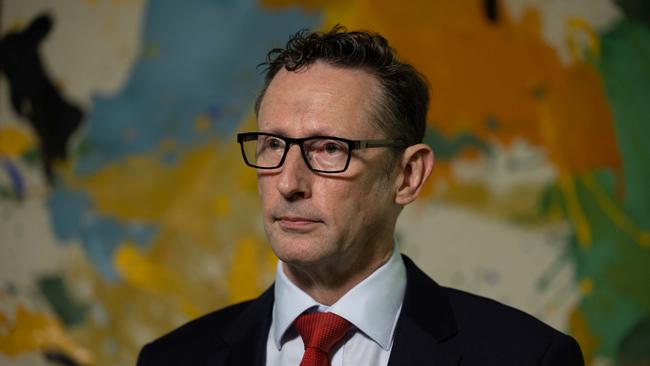Why the financial adviser shortage will last another decade
Fees for advice will be beyond the reach of everyday investors for the next decade, as the government drags its feet on reforms to slash red tape.

Business
Don't miss out on the headlines from Business. Followed categories will be added to My News.
As the government drags its feet on reforming financial advice, a new report forecasts the chronic shortage of advisers will last a decade.
With industry numbers cut in half over the last 10 years, a report from the Rainmaker Information group says the industry will barely be able to replenish today’s diminished adviser population of around 16,000.
The modelling on industry participation implies that advice – at an estimated $3500 per year in fees – will remain out of reach for the vast majority of Australians.
The local market had around 30,000 advisers before the Hayne royal commission in 2017 triggered a weeding out of rogue players and sent the major banks fleeing the sector. However, the industry has shown little ability to rebound as a handful of major players now dominate the top end and the rest of the sector is left to a sprinkling of operations that are trying to establish low-fee, low-touch, digital advice.
Last week the government missed a major opportunity to revitalise the sector when it disappointed even the modest hopes of insiders with the partial implementation of what it described as the first phase in reforms raised by lawyer Michelle Levy in the Quality of Advice Review.
Sidestepping or delaying the more ambitious elements of Levy’s review, there is now fear the government will never move to introduce the deregulation agenda contained in the review.
Financial Services Minister Stephen Jones has signed off on a selection of measures to reduce red tape but left even modest proposals such as the scrapping of the expensive Statement of Advice recruitment on the shelf.

“Our numbers suggest the industry is stabilising – that is the departures are slowing down but there is nowhere near enough new advisers joining the industry – we see perhaps a 100 new advisers entering the industry in a three-month period, at this rate it is going to be trouble,” says Alex Dunnin of Rainmaker.
The stalemate in reform means the financial advice sector is most likely to continue its drift into becoming the exclusive preserve of wealthy Australians, with many advisers now insisting that new customers have more than $500,000 to invest beyond their family home before they get in the door.
As The Australian reported in this year’s Top 100 Financial Advisers list, the industry is dominated by a group of players such as Morgan Stanley, Pitcher Partners, Macquarie, Escala Partners, Koda and Shadforth.
With the industry leaving little room for middle-income investors – the leading digital advice groups such as Stockspot are hoping to capture the promise of artificial intelligence. A report from McKinsey & Co has indicated the use of AI could cut annual adviser fees from $3500 to $1000.
Though Rainmaker expects that adviser numbers will remain with a range of 15,000 to 18,000 by the end of the next decade, Dunnin suggests: “Many people, especially those who are ready to retire, still want to sit across the table from an adviser when it comes to major decisions.”
As the industry resets, there have been major moves as the top of the market.
In recent days there has been a transfer of a group of advisers from Morgan Stanley to Shaw and Partners, including Stuart Beattie, ranked 57 on the The Australian/Barrons Top 100 list.
The industry is also waiting to see if the government will ultimately legislate to allow the major superannuation funds to extend the range of financial advice they offer to members – with plans for the sector remaining on hold until next year, according to the government.
More Coverage
Originally published as Why the financial adviser shortage will last another decade





